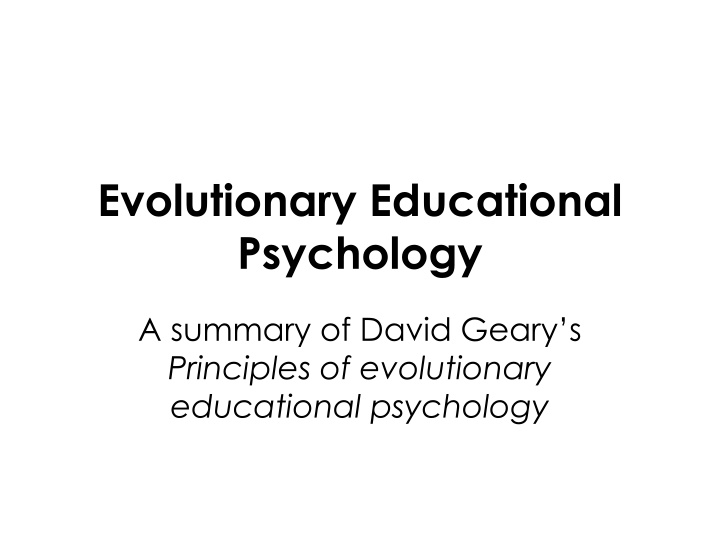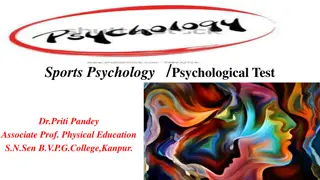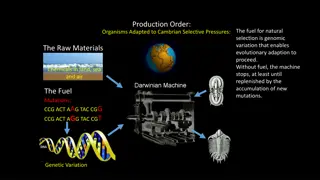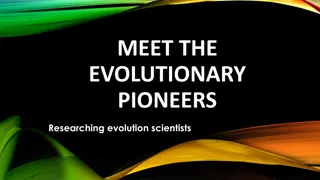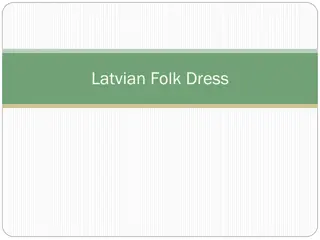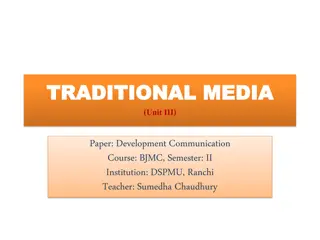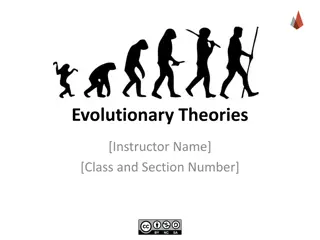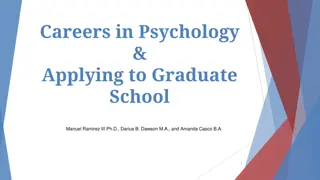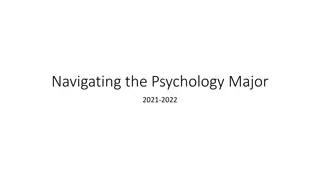Evolutionary Educational Psychology: Understanding the Gap Between Folk and Secondary Knowledge
Evolutionary Educational Psychology explores how children are naturally motivated to develop folk knowledge and the role schools play in bridging the gap between folk and secondary knowledge. It discusses cooptation, the adaptation of cognitive systems, and highlights the widening disparity between folk knowledge and modern academic competencies, emphasizing the importance of acquiring novel skills in today's fast-paced world.
Download Presentation

Please find below an Image/Link to download the presentation.
The content on the website is provided AS IS for your information and personal use only. It may not be sold, licensed, or shared on other websites without obtaining consent from the author.If you encounter any issues during the download, it is possible that the publisher has removed the file from their server.
You are allowed to download the files provided on this website for personal or commercial use, subject to the condition that they are used lawfully. All files are the property of their respective owners.
The content on the website is provided AS IS for your information and personal use only. It may not be sold, licensed, or shared on other websites without obtaining consent from the author.
E N D
Presentation Transcript
Evolutionary Educational Psychology A summary of David Geary s Principles of evolutionary educational psychology
Principles of Educational Evolutionary Psychology 1. Secondary knowledge has grown out of folk knowledge. There is a gap between secondary knowledge and folk knowledge 2. Schools exist to bridge that gap 3. Children are innately motivated towards developing their folk knowledge 4. The way children acquire folk knowledge is insufficient for the way they acquire secondary knowledge
Folk knowledge Secondary knowledge Biblical morals, communication with and influencing others behaviours Roman numerals formal counting system 20C Quantum mechanics Newtonian mechanics 200,000BC Bedrock of folk psychology, biology and physics. Non-formal number counting. Aristotle and others: classification of animals + plants, physics, four elements Arabic numerals, algebra Atomic theory Linnaeus taxonomy Alchemy Euclidean geometry Today, there is an ever- widening gap between folk knowledge and scientific and technological advances and an accompanying need to acquire novel academic competencies
Cooptation: the adaptation (typically through instruction) of evolved cognitive systems for culturally specific uses i.e. when a primary system e.g. folk psychology, is utilised to produce a secondary system
Reading, writing, stories, poems, dramas reflecting nuances of social relationships Folk Psychology Cooptation Communication, language, social relationships, theory of mind Secondary Primary
Folk Biology Classification of animals and plants. Living things have innards . Offspring will have the same essence as their parents. Systematic taxonomies. Anatomy. Behavioural ecology. Cooptation Secondary Primary
Folk Physics Newtonian mechanics, engineering, quantum mechanics Cooptation Motion, trajectories, behaviour of simple objects Secondary Primary
Inferential biases/misconceptions examples Folk biology: classification focusses on differences between species. Short- term time-frame. Study of natural selection: focusses on differences within species. Time-frame of many thousands of years. Helps predict behaviour of plants and animals. Helps understand processes of speciation. Newton s three laws, predict movements of complex bodies. Folk Physics: Impetus - an object in flight has a force acting on it. Reasonable explanation for everyday situations
Widened gap As with biology, the knowledge base of the physical sciences is exponentially larger than the knowledge base of folk physics and in some cases (e.g., quantum mechanics) the accompanying conceptual models bear little resemblance to the na ve concepts of folk physics.
Motivation Children are innately curious about and motivated to actively engage and explore social relationships and the environment biases that are directed toward information and activities associated with folk knowledge.
A burning desire to master algebra or Newtonian physics will not be universal, or even common. Those who do dedicate their lives to a specific area have individual differences related to: Ability to acquire secondary competencies Intellectual curiosity Willingness to engage in long and tedious training Degree to which the underlying folk systems are elaborated
For most people, motivation to study secondary areas will be more related to the primary area which underlies it. E.g. reading is secondary but many people will read stories for pleasure as they relate to primary areas. Children s natural curiosities and interests will be unlikely to lead them to secondary knowledge.
The need for instruction primary/secondary gap Primary/ secondary gap Prehistory Modern era
Need for instruction Primary/Secondary Gap Size
John Sweller, Instructional Implications of David C. Geary s Evolutionary Educational Psychology
Biologically primary Knowledge is acquired easily and unconsciously Intrinsic motivation Limited instruction required Long term memory important in knowledge acquisition Working memory limitations are limited Problem solving does not seem to apply Biologically seconday Conscious effort Extrinsic motivation Explicit instruction required Long term memory important in knowledge acquisition Strong working memory limitations Problem solving/generate and test model essential
